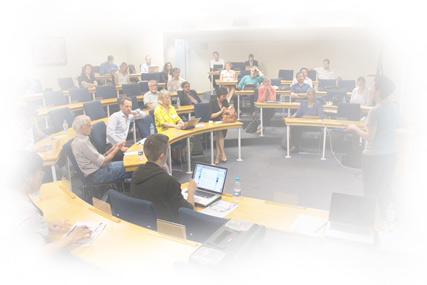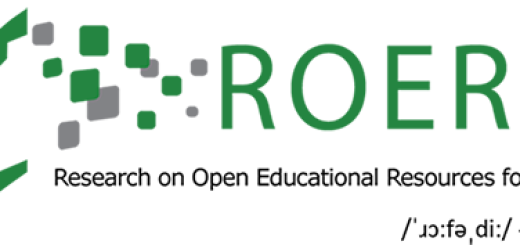
Image by Fatimah Fatih, made available under a CC-BY license
In this post Henry Trotter considers how policy might act as a lever for OER adoption but is itself mediated by institutional culture.
One of the primary focuses for Year of Open campaign which recently featured Open Policy as a key topic area, with many perspectives stressing the need for policy to enable OER adoption at these various levels.
However, a policy approach must first contend with prevailing laws which are difficult to change in the short term. Thus, at a national level, there are copyright laws to navigate, which typically grant copyright over materials produced in a work setting with the employer, not the creator of the materials. In higher education, this means that the institution is typically the de facto copyright holder of teaching materials produced by its educators. Any attempt advocates make to shape OER creation must deal with this fact, either encouraging policies that place the onus of OER dissemination with the institution (as at University of Cape Town). Each approach entails its own opportunities and constraints.
A key opening for advocates, however, is through national education policies, which are easier to influence than laws. Education policies are regularly updated, often with the opportunity for stakeholders to contribute suggestions to their drafting. Well-organised advocacy groups can make major interventions in the language, trajectory and intent of educational policies, creating opportunities for greater open education awareness amongst politicians and education administrators, and establishing the foundation for future claims to support for OER. For example, a recent call for comments on the Open Learning Policy Framework for Post-School Education and Training issued by the South African Department for Higher Education enabled feedback by institutions and projects such as ROER4D.
Nevertheless, no matter the national educational policy landscape, a key element shaping whether lecturers or institutional managers will actually adopt OER concerns the type of institutional culture that prevails at a given institution. This will shape the kinds of policies and strategies that are best suited for those contexts.
For instance, in a collegial institutional culture (where lecturers enjoy a high degree of autonomy), mandate-type policies appear be the least persuasive for lecturers who prefer to work according to intrinsic desires, especially for activities that might be seen as additional to their core job responsibilities. In a bureaucratic institutional culture, where policies may be arbitrarily implemented (often due to resource constraints), policy elaboration may not yield much activity either. Yet this may be exactly the type of approach that is best in a managerial institutional culture where lecturers look to strong, tight policy guidelines to determine their activities (see Cox & Trotter 2016).
The point is, institutional culture often acts as a positive or negative lever on policy innovations, either amplifying a policy’s potential success (because it aligns with prevailing values) or dampening it. This recognition is useful for OER advocates who may be tempted to promote a one-size-fits-all policy approach to encourage OER adoption. It may, ultimately, be worth developing a suite of policy options – drawn, for example, from some of the recommendations to universities by the Policies for OER Uptake (POERUP) project – that institutions can choose from that best suit the type of cultural and governance arrangements that abide there.
And it should, perhaps, go without saying that policy elaboration without attendance to on-site OER awareness raising activities as well as the necessary administrative, technical, financial and legal support to assist lecturers (or managers who may desire to disseminate their institution’s teaching materials as OER) will only go so far. OER engagement for higher educators is not a simple extension of their normal work: it is a complex and culturally mediated elaboration of that work.





